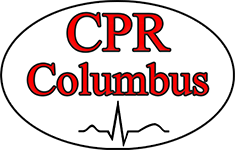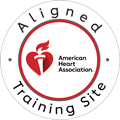Advanced Cardiac Life Support (ACLS) certification is a specialized training program designed for healthcare professionals to enhance their skills in managing cardiovascular emergencies. ACLS goes beyond Basic Life Support (BLS), providing a comprehensive framework for responding to cardiac arrest and other life-threatening situations. This article explores the profound significance of ACLS certification in critical care settings.
In critical care, where every second counts, ACLS certification becomes a critical asset. It equips healthcare professionals with the advanced knowledge and skills needed to handle complex cardiac emergencies, potentially saving lives in high-stakes situations. Evidence-based practice is at the core of ACLS training. This section delves into studies and statistics that highlight the correlation between ACLS-trained healthcare professionals and improved patient outcomes in critical care settings.
CPR Columbus and its Commitment to Providing ACLS Training
At the forefront of ACLS training is CPR Columbus, a dedicated institution committed to delivering high-quality training for healthcare professionals. With a mission to empower doctors and nurses with life-saving skills, CPR Columbus plays a crucial role in elevating the standard of care in critical settings.
ACLS certification is an advanced training program that focuses on the prompt recognition and intervention of cardiovascular emergencies. The primary purpose is to equip healthcare professionals with the skills needed to manage complex situations, including cardiac arrest, stroke, and other acute cardiac events.
The American Heart Association (AHA) is a central figure in ACLS certification, setting the standards and guidelines for training programs. AHA ensures that ACLS courses are evidence-based and aligned with the latest advancements in resuscitation science, reinforcing the credibility and effectiveness of ACLS certification.
Call Us Now
Get the Best CPR Class in Columbus Today!
ACLS Training Levels and Target Audience
ACLS training is stratified into different levels to cater to various healthcare professionals. It is tailored for doctors, nurses, paramedics, and other advanced healthcare providers. This section explores the diverse target audience and the specialized training paths within ACLS certification.
The benefits of ACLS certification extend beyond personal development. This section delves into how ACLS equips healthcare professionals with the confidence and skills needed to provide advanced life support in critical situations, ultimately improving patient outcomes.
Core Components of ACLS Training
Recognition of Cardiac Arrest and Initial Steps
ACLS training begins with the rapid recognition of cardiac arrest and the initiation of immediate life-saving measures. Participants learn to assess the situation, activate emergency response systems, and prioritize interventions based on the patient’s condition.
Basic Life Support (BLS) and the Role of Chest Compressions
BLS is the foundation of ACLS, emphasizing the importance of high-quality chest compressions. This section explores how ACLS incorporates BLS principles and highlights the critical role of chest compressions in maintaining blood circulation during cardiac arrest.
Advanced Life Support Techniques
- Airway Management
ACLS covers advanced airway management techniques, ensuring healthcare professionals can secure and maintain a patient’s airway during resuscitation efforts.
- Medications and Pharmacology
Healthcare providers learn the appropriate use of medications and understand the pharmacology behind each intervention, tailoring treatment to the specific needs of the patient.
- Defibrillation and Electrical Therapies
ACLS training includes in-depth instruction on defibrillation and other electrical therapies. Participants learn to interpret cardiac rhythms and deliver timely defibrillation to restore normal heart rhythm.
- Post-Resuscitation Care
The training extends beyond the resuscitation phase, covering post-resuscitation care to optimize the chances of a positive patient outcome.
Team Dynamics and Communication During Resuscitation
ACLS emphasizes effective communication and teamwork during resuscitation efforts. Participants learn how to coordinate with other healthcare professionals, ensuring a synchronized and efficient response in critical situations.
The Role of ACLS in Critical Care
Critical care settings, such as intensive care units (ICUs) and emergency departments, demand a heightened level of expertise. This section provides an overview of the unique challenges and demands of critical care environments. In critical care, where patients are often in precarious conditions, ACLS becomes indispensable. ACLS-trained healthcare professionals are better equipped to respond swiftly and effectively to the dynamic challenges presented in these settings.
The Role of Doctors in Critical Care
Doctors in critical care settings bear the responsibility of making rapid and informed decisions. ACLS certification equips them with the advanced skills needed to lead resuscitation efforts and manage complex cardiac emergencies. ACLS benefits doctors in critical care, from boosting confidence to improving patient survival rates.
The Role of Nurses in Critical Care
Nurses are the frontline caregivers in critical care settings, requiring a diverse skill set to address the varying needs of patients. ACLS certification enhances their ability to provide advanced life support and make quick decisions in critical situations. For nurses, ACLS certification is a valuable asset that goes beyond routine patient care. This section explores how ACLS certification enhances a nurse’s capacity to respond to emergencies and contribute to the overall quality of care in critical settings.
CPR Columbus: Your Trusted ACLS Training Partner
CPR Columbus stands out as a trusted training partner committed to delivering top-quality ACLS training. This section introduces the mission of CPR Columbus, emphasizing its dedication to empowering healthcare professionals with life-saving skills. CPR Columbus offers a comprehensive ACLS training program that aligns with AHA guidelines. This section provides insights into the key features that make CPR Columbus a preferred choice for ACLS certification.
ACLS certifications have a validity period, of two years. Continuing education is a cornerstone of maintaining excellence in healthcare. This section explores the significance of ongoing training and how it contributes to the professional growth of healthcare providers.
CPR Columbus is not just a training provider; it is a partner in the ongoing professional development of healthcare professionals. This section outlines the support and resources offered by CPR Columbus for ACLS recertification and continuous learning. ACLS certification creates a ripple effect, positively influencing the overall quality of healthcare delivery. This section explores how ACLS-trained professionals contribute to a culture of excellence in patient care.
Doctors and nurses to consider should consider pursuing ACLS certification. It emphasizes that being ACLS-certified is not only a professional requirement but a commitment to providing the highest level of care in critical settings. CPR Columbus has an unwavering commitment to providing top-quality ACLS training. It encourages healthcare professionals to choose CPR Columbus as their trusted partner in acquiring and maintaining ACLS certification, ultimately contributing to a safer and more proficient healthcare community.


